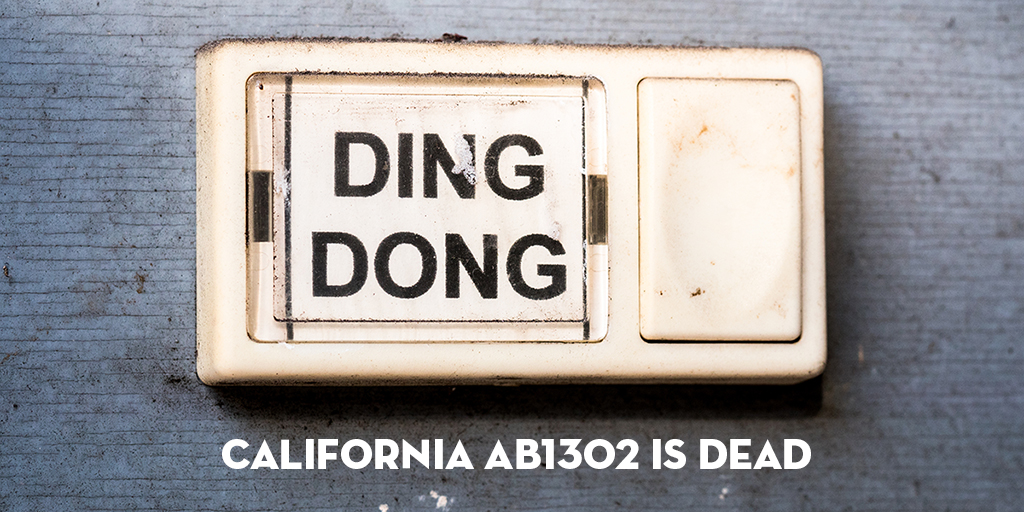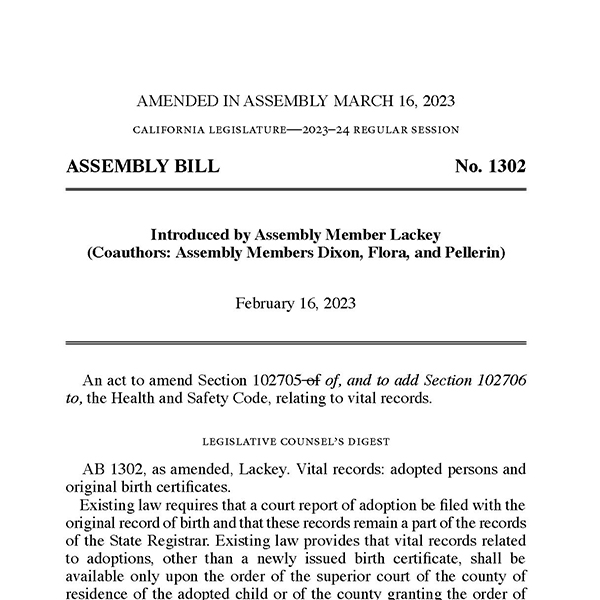California Assembly Bill 1302 is dead. There is no need for further advocacy to oppose the bill—and we may see a better bill soon.
California’s AB1302 was initially set for hearing in early January 2024, but it was pulled by request of the author. It then ran out of time this year to be heard and reported from committee. It is now dead, having failed to meet required deadlines.
What’s Next
A different bill may be introduced in the California Senate within the next few weeks. It is expected to be an unrestricted equal rights bill, though it is typically negotiated with key committee staff before introduction. The deadline to introduce bills in the California Senate this year is February 16, 2024. The California Senate meets throughout the year, and the following deadlines impact whether a bill moves forward or not.
| Action/Status | Deadline |
|---|---|
| Last day for bills to be introduced | 2/16/2024 |
| Last day for policy committees to hear and report fiscal bills to fiscal committees | 4/26/2024 |
| Last day for policy committees to hear and report non-fiscal bills to the Senate floor | 5/3/2024 |
| Last day for fiscal committees to hear and report bills to the Senate floor | 5/17/2024 |
What You Can Do
Sign up to stay engaged and involved. We will share information, resources, and what we learn so that you are informed about what’s happening and what advocacy may be needed during the session.





